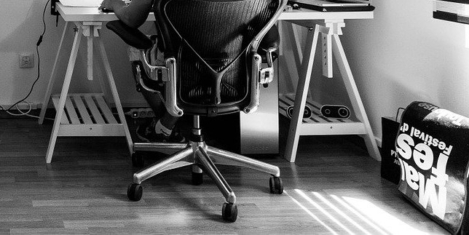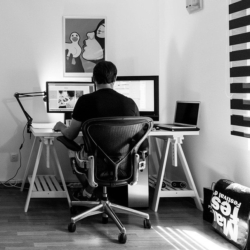To provide the best experiences, we use technologies like cookies to store and/or access device information. Consenting to these technologies will allow us to process data such as browsing behaviour or unique IDs on this site. Not consenting or withdrawing consent, may adversely affect certain features and functions.
The technical storage or access is strictly necessary for the legitimate purpose of enabling the use of a specific service explicitly requested by the subscriber or user, or for the sole purpose of carrying out the transmission of a communication over an electronic communications network.
The technical storage or access is necessary for the legitimate purpose of storing preferences that are not requested by the subscriber or user.
The technical storage or access that is used exclusively for statistical purposes.
The technical storage or access that is used exclusively for anonymous statistical purposes. Without a subpoena, voluntary compliance on the part of your Internet Service Provider, or additional records from a third party, information stored or retrieved for this purpose alone cannot usually be used to identify you.
The technical storage or access is required to create user profiles to send advertising, or to track the user on a website or across several websites for similar marketing purposes.
 Swiss Post Solutions (SPS), has released new research that claims how the pandemic has impacted front of house strategies for UK businesses. Half (50 percent) of UK companies plan to introduce interactive technologies to help overcome new ‘front of house’ (FOH) challenges that have been imposed by COVID19. A further 41 percent of businesses plan to outsource FOH services altogether. (more…)
Swiss Post Solutions (SPS), has released new research that claims how the pandemic has impacted front of house strategies for UK businesses. Half (50 percent) of UK companies plan to introduce interactive technologies to help overcome new ‘front of house’ (FOH) challenges that have been imposed by COVID19. A further 41 percent of businesses plan to outsource FOH services altogether. (more…)








 EMEA business leaders are out of touch with what employees want in the hybrid workplace experience, and 66 percent of organisations plan to adopt a different operating model than they had before the COVID-19 pandemic, according to a new survey from
EMEA business leaders are out of touch with what employees want in the hybrid workplace experience, and 66 percent of organisations plan to adopt a different operating model than they had before the COVID-19 pandemic, according to a new survey from 
 New research by employee engagement and culture app,
New research by employee engagement and culture app, 
 New research by
New research by 
 Research commissioned by
Research commissioned by 
 A new global survey by CFO Research and
A new global survey by CFO Research and 


 A year of unnecessarily binary conversation about work leads inevitably to this. A stupid question.
A year of unnecessarily binary conversation about work leads inevitably to this. A stupid question. 
 The productivity benefits of homeworking appear to have increased during the pandemic, with employers now more likely to say that the shift to homeworking has boosted productivity (33 percent) than they were in June 2020 (28 percent). This is according to new research by the
The productivity benefits of homeworking appear to have increased during the pandemic, with employers now more likely to say that the shift to homeworking has boosted productivity (33 percent) than they were in June 2020 (28 percent). This is according to new research by the 
 Remote workers are still struggling with distracting working environments, stress and an ‘always-on’ culture after a year of working from home. Egress’
Remote workers are still struggling with distracting working environments, stress and an ‘always-on’ culture after a year of working from home. Egress’ 







April 30, 2021
What’s a landlord to do when the office is a destination, not a routine?
by Ken Giannini • Cities, Comment, Property, Workplace design